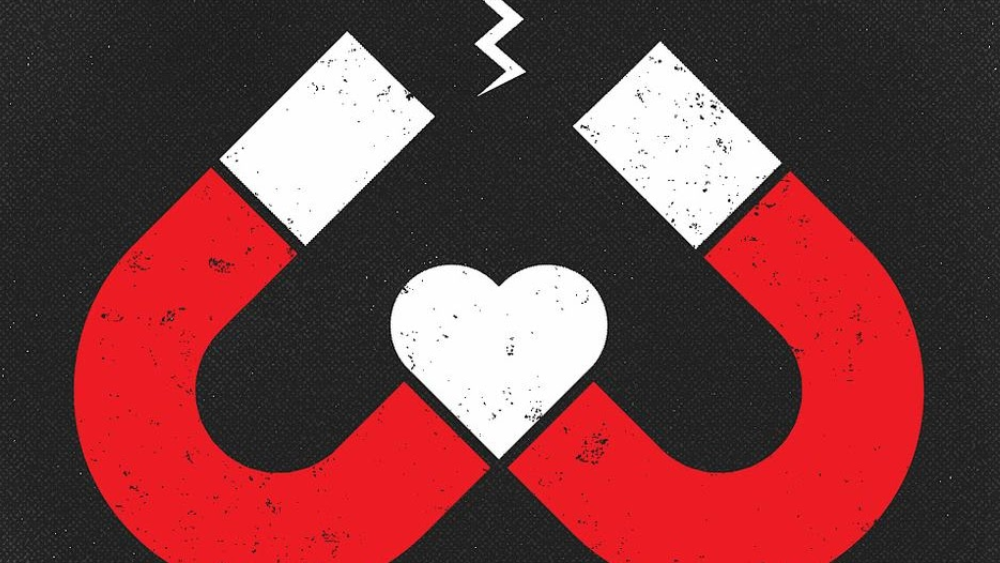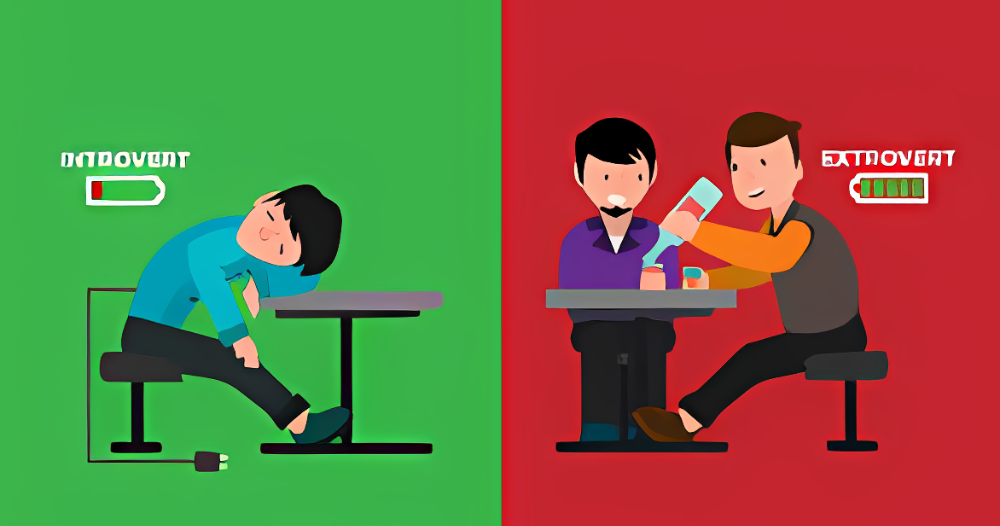Explore the key differences between introvert vs extrovert, how they navigate the world, and why both personality types are essential to a balanced society.
Table of Contents
Introduction
In the world of personality psychology, one of the most well-known and widely discussed dichotomies is the contrast between Introvert vs Extrovert. But what do these terms really mean? And how do they affect the way people interact with the world around them?
What Does It Mean to Be an Introvert?

At its core, introversion refers to individuals who are energized by solitude and tend to feel drained after prolonged social interactions. Unlike extroverts, who thrive in social settings, introverts often need time alone to recharge their mental and emotional batteries. This doesn’t mean introverts are shy or antisocial, but rather that they have a preference for quieter environments and deeper, more meaningful interactions.
Key Traits of Introverts:
- Enjoy solitude: Introverts are often content spending time alone, whether reading a book, pursuing a hobby, or just thinking quietly.
- Recharge in solitude: Social interactions, particularly large groups or high-energy settings, can be draining for introverts. They need time alone to recharge.
- Reflective and introspective: Introverts tend to think deeply and reflect on their thoughts and feelings, often contemplating things at length.
- Prefer one-on-one conversations: Rather than large group discussions, introverts usually prefer meaningful, one-on-one exchanges with a close friend or family member.
- Sensitive to overstimulation: Introverts can feel overwhelmed in noisy, chaotic environments and may seek calm, quiet spaces to regain focus.
What Does It Mean to Be an Extrovert?

On the opposite side of the spectrum, extroversion refers to individuals who are energized by social interactions and thrive in dynamic, stimulating environments. Extroverts typically feel recharged after spending time with others, and they often enjoy being the center of attention in group settings. For extroverts, socializing is not just a pastime, but an essential part of feeling good and connected to the world.
Key Traits of Extroverts:
- Energized by social interactions: Extroverts gain energy from socializing with others, whether in large groups, at parties, or during group activities.
- Outgoing and talkative: Extroverts often enjoy starting conversations and expressing their thoughts openly. They may find it easy to make small talk and enjoy meeting new people.
- Action-oriented: Extroverts tend to be more action-oriented and enjoy being busy, exploring new places, or trying new activities.
- Thrives in group settings: Extroverts are often seen as natural leaders in group settings and prefer collaborative environments where they can engage with others.
- Comfortable with change: Extroverts are generally more adaptable to new situations and thrive in dynamic, ever-changing environments.
The Spectrum of Personality
It’s important to note that introversion and extroversion aren’t absolutes. Most people fall somewhere along a spectrum, exhibiting traits of both personality types to varying degrees. This means you might have an introverted core but still enjoy socializing in smaller groups, or you could be an extrovert who sometimes values alone time.
Psychologist Carl Jung, who is credited with popularizing the concepts of introversion and extroversion, believed that everyone has both introverted and extroverted tendencies. It’s the dominant tendency that influences your overall personality. While introverts may seek out more solitary activities, they still need to engage with the world in some way, just in a more reserved manner. Similarly, while extroverts are naturally outgoing, they also require occasional periods of solitude for reflection.
How Do Introverts and Extroverts Navigate the World?

Social Interactions
- Introverts: Introverts tend to engage more deeply in one-on-one conversations and may prefer small, intimate social gatherings over large parties or networking events. They may choose quality over quantity in relationships, often forming strong bonds with a smaller circle of close friends.
- Extroverts: Extroverts thrive in larger, more dynamic social situations. They are often the life of the party and may have a wider social network, enjoying meeting new people and being around a variety of personalities. Extroverts are also more likely to initiate social interactions.
Work and Productivity
- Introverts: In a work environment, introverts may prefer quiet spaces where they can focus without interruptions. They often excel in roles that require independent work, problem-solving, and deep thinking. Introverts may also excel at listening, observing, and offering thoughtful insights.
- Extroverts: Extroverts tend to be drawn to collaborative environments where they can interact with others. They excel in roles that require teamwork, brainstorming, and communication. Extroverts may thrive in sales, leadership positions, or any field that demands high levels of social interaction.
Decision-Making
- Introverts: Introverts are often more deliberate in their decision-making process. They like to think things through, weigh the pros and cons, and seek time alone to reflect before making a final choice. They may also rely on their inner thoughts and intuition rather than seeking advice from others.
- Extroverts: Extroverts, on the other hand, are more likely to make quick decisions and may consult others for input. They value feedback from people around them and are often more comfortable taking risks or making changes quickly.
Common Myths and Misconceptions

While there are many positive traits associated with both introversion and extroversion, these personality types are often misunderstood. Here are some common myths:
- Introverts are shy: Not all introverts are shy. Shyness refers to discomfort in social situations, while introversion is about where you draw your energy from. Many introverts are confident and assertive but simply prefer fewer, deeper connections.
- Extroverts are more confident: Extroverts are often seen as more confident because they are vocal and outgoing. However, this doesn’t necessarily mean they feel more confident internally. Extroverts may sometimes use socializing as a way to mask insecurity or self-doubt.
- Introverts don’t like people: Introverts enjoy meaningful connections, but they may feel overwhelmed by too much social interaction. They tend to prefer smaller, more intimate settings rather than large crowds.
- Extroverts are always happy: Just because extroverts seem more energetic or enthusiastic doesn’t mean they are always happy. Like everyone else, they have moments of doubt and vulnerability, but they may be more open about expressing these feelings.
Celebrating the Diversity of Personality
Understanding the differences between introverts and extroverts can help us appreciate the diversity of human personalities. Instead of viewing these traits as opposites, it’s helpful to see them as two ends of a spectrum. Both introverts and extroverts contribute valuable qualities to relationships, work environments, and communities.
In a world that often seems to favor extroverted qualities—like being outgoing, assertive, and social—it’s important to recognize that introverts bring equally important strengths to the table. Similarly, while introverts may prefer quieter, less stimulating environments, extroverts can help bring energy, enthusiasm, and creativity to their social circles.
Conclusion
Whether you lean more towards introversion or extroversion, the key to success and happiness lies in embracing your unique personality and finding balance. The more we understand and appreciate each other’s differences, the richer our interactions and relationships will become. After all, both introverts and extroverts have much to offer—and both personality types are essential to a harmonious, well-rounded society.
Boost Your Social Skills With Mastering Extrovert in Communication
For Video Content: Checkout Our Youtube Channel
FAQ: Introvert vs Extrovert
What is the main difference between Introvert vs Extrovert?
The main difference is that introverts gain energy from solitude and tend to feel drained by social interactions, while extroverts gain energy from socializing and often feel energized by being around others.
Can a person be both an Introvert vs Extrovert?
Yes! Most people fall somewhere in between on the introversion-extroversion spectrum, exhibiting traits of both. These individuals are sometimes referred to as “ambiverts.”
Are introverts shy between Introvert vs Extrovert?
Not necessarily. Shyness refers to a fear of social situations, while introversion is about a preference for solitude or smaller social groups. Many introverts are confident but enjoy quiet, reflective time.
Can extroverts be lonely between Introvert vs Extrovert?
Yes, extroverts can feel lonely too, despite their outgoing nature. They may crave social interaction, but sometimes feel disconnected or unfulfilled by superficial relationships.
Can introverts succeed in leadership roles?
Absolutely! Introverts can be highly effective leaders, especially when they focus on listening, deep thinking, and building strong, meaningful relationships within their teams.
How do introverts and extroverts handle stress differently?
Introverts may prefer to deal with stress by retreating to a quiet space, reflecting, or spending time alone. Extroverts, on the other hand, may seek support from others or distract themselves through social activities.
Are there any disadvantages to being an Introvert vs Extrovert?
Both personality types have their challenges. Introverts may struggle in highly social or loud environments, while extroverts may find it hard to focus without external stimulation or feel overwhelmed by too much alone time.
How can I balance Introvert vs Extrovert traits?
Understanding your natural tendencies is the first step. Embrace the strengths of both sides, seeking social interaction when it recharges you and ensuring you take time for yourself when you need solitude.
Can Introvert vs Extrovert have successful relationships?
Yes! Introverts and extroverts can complement each other in relationships. Introverts offer depth and introspection, while extroverts bring energy and sociability. Mutual respect for each other’s needs is key to making the relationship work.
How can I tell if I am moreIntrovert vs Extrovert?
Pay attention to how you feel after social events. Do you feel drained and in need of quiet time (introvert), or do you feel energized and want to keep socializing (extrovert)? Your tendencies will give you insight into your natural preference.
By: Ardansharma



Pingback: Why Being Concise in Conversation is a Game-Changer?